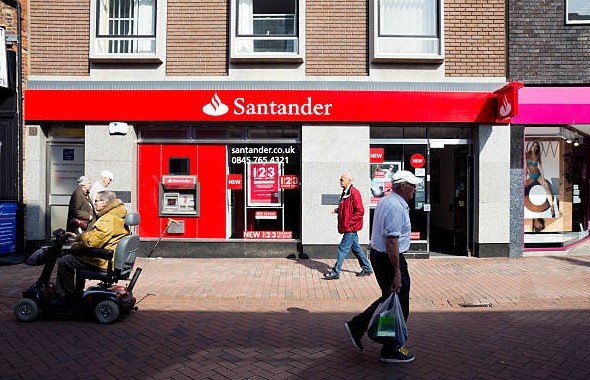Switching banks might sound like a hassle, but Martin Lewis, the Money Saving Expert founder, insists it’s simpler than you think—and could put up to £300 in your pocket. Several big names—First Direct, TSB, Nationwide, Santander, and The Co-Operative Bank—are rolling out attractive deals to tempt new customers.
Lewis told viewers on This Morning that banks now offer a quick seven-working-day switching service that transfers your direct debits and standing orders automatically. So, no need to worry about missing payments or scrambling to update details yourself.
Why Banks Are Throwing Money at New Customers
It’s no secret that banks love new customers. The current UK banking market is fiercely competitive, with each player trying to outdo the others in snagging your business. Offering cash incentives is one of the oldest tricks in the book, but it still works. The difference now is how easy they’ve made switching.
Gone are the days when changing banks meant dealing with piles of paperwork and juggling payments manually. Today, thanks to the Current Account Switch Service (CASS), your money and direct debits move smoothly, typically within a week.
Martin Lewis emphasized how this convenience has lowered the barrier for many people to try new banks. And with up to £300 on the table, the incentive is pretty clear.

The Five Banks Offering the Sweetest Deals
Let’s break down what the banks are offering. While offers change often, here’s a quick snapshot of what’s currently on the table:
-
First Direct: Known for excellent customer service, they’re offering a welcome bonus that can reach £100 for new current account customers.
-
TSB: Offering up to £150 cashback, particularly attractive if you set up direct debits.
-
Nationwide: This building society offers up to £125 in switching bonuses with added perks like fee-free overdrafts.
-
Santander: They’re pulling out the stops with a deal that can reach £150 for new customers who meet certain criteria.
-
The Co-Operative Bank: Offering a straightforward £100 switching incentive.
These figures might seem small, but combined, you could pocket nearly £300 by switching to each bank one after another—if you’re organized and willing to handle multiple account openings.
How to Switch Without the Stress
Many people fear switching banks because it sounds complicated or risky. “Will I miss a payment?” “Will my salary go through?” These are common worries. But the switching system is designed to handle these issues automatically.
Once you decide to switch, your new bank uses the Current Account Switch Service to:
-
Close your old account.
-
Move all direct debits and standing orders.
-
Transfer your balance.
-
Redirect any payments made to your old account for six months.
This service has been praised by consumer groups for simplifying what used to be a nightmare. And Martin Lewis is quick to remind folks that the entire process takes about seven working days.
One quick tip Lewis shared: keep a close eye on your statements during the switch and double-check your payment schedules. It never hurts to stay on top of things, but generally, the process is smooth.
Why You Might Want to Consider Switching Now
Interest rates and fees on current accounts have been a sore spot for many UK customers lately. Many accounts offer little or no interest, and some even come with hidden fees. So, snagging a deal that puts money in your hand, plus possibly better terms, is a no-brainer.
Furthermore, banks like First Direct and Nationwide have built reputations for user-friendly digital banking apps and solid customer service. If you’re frustrated with your current provider, this could be a chance to upgrade your banking experience while getting a nice bonus.
For those wary about managing multiple accounts, it’s worth noting that some people juggle a “primary” account for everyday use and another specifically to grab switching bonuses. This way, you keep your main banking life intact while taking advantage of perks elsewhere.
The Real Bottom Line
So, can you really make £300 just by switching? The short answer is yes, but it’s not exactly effortless cash. You’ll need to meet certain conditions—usually involving setting up direct debits, receiving a minimum monthly income, or keeping the account open for a specified period.
Still, for many, the hassle is minimal compared to the reward. Martin Lewis has made a career out of finding practical, straightforward money-saving tips, and this one fits the bill.
If you’ve been putting off switching because it seemed like a headache, it might be time to give it another look. After all, £300 isn’t something to sneeze at.






